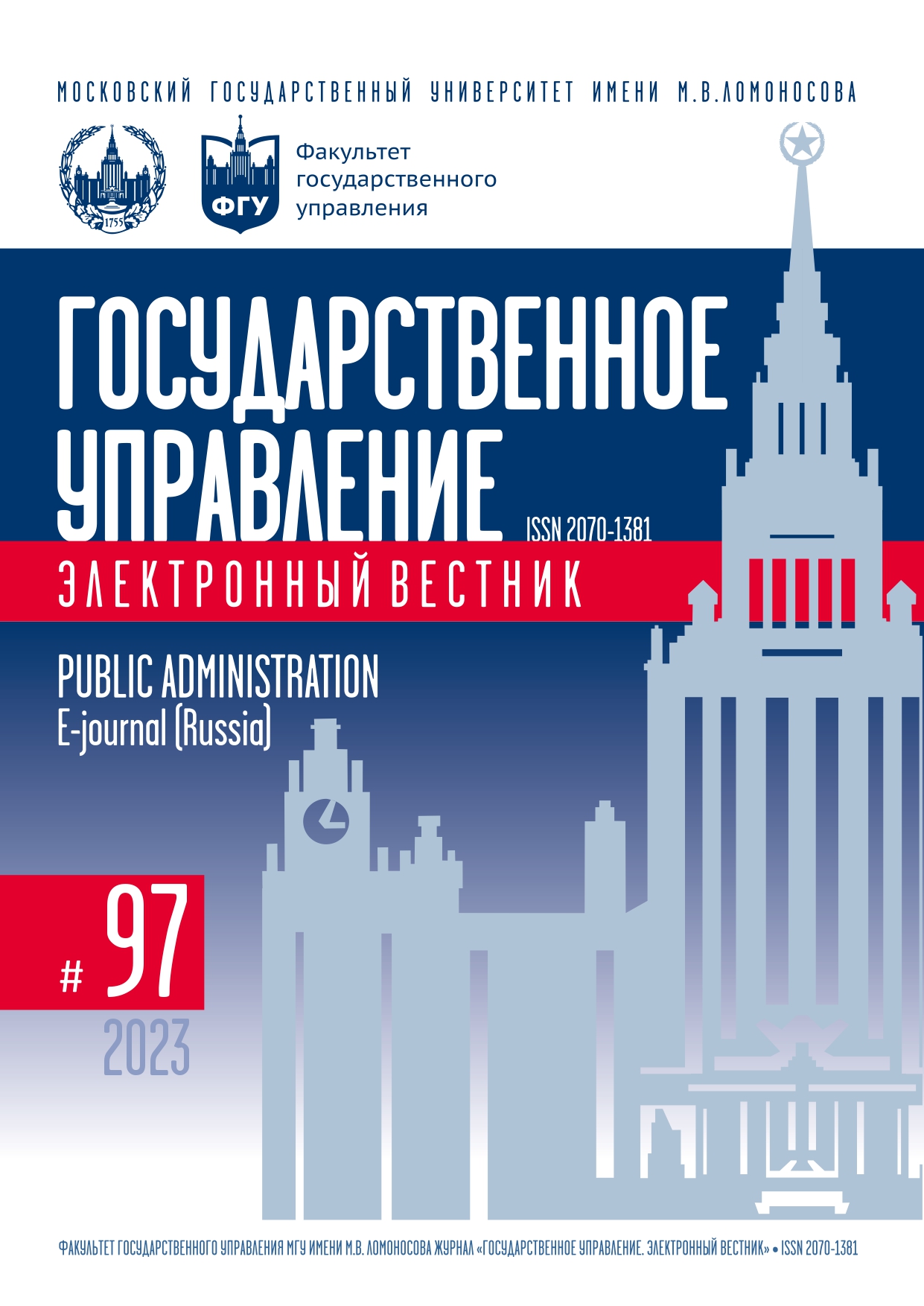Social and Labor Conflicts in Modern Russian Society
Keywords:
Social conflict, social and labor conflict, drivers of social and labor conflicts, digitalization of labor activity, educational policyAbstract
Social and labor conflicts as a kind of social conflicts have a direct impact on social development, being a negative factor in the implementation of labor activity and violating social well-being in general. However, the inevitability and permanent presence of social and labor conflicts with any modern society requires constant updating of both the theoretical and methodological basis for their interpretation and the practices of their settlement. This article is devoted to a review of theoretical approaches to the interpretation of the concept of “conflict” in various sciences, the specifics of determining the essence and attributes of a social and labor conflict in modern conditions, as well as identifying the features of social and labor conflicts in modern Russia in retrospect and in the early 2020s. The purpose of the article is to identify and describe the characteristics, factors that intensify social and labor conflicts in modern Russian society. The paper identifies and describes traditional and new drivers of social and labor conflicts, identifies and characterizes the stages of their development, sources of conflicts and forms of expressing demands over the past 30 years, identifies and investigates the types of Russian social and labor conflicts. Particular attention is paid to the influence of modern trends (digitalization, the use of artificial intelligence, the spread of the pandemic, the opportunities and limitations of the potential of a new human resource in the form of generation Z in professional activities) on the drivers and forms of social and labor conflicts. The paper demonstrates the discrepancy between the priorities of modern educational policy and the request from employers in the form of certain competencies necessary for the real sector of the economy. The article also explores the dynamics of ways to resolve conflicts in the labor sphere in modern Russian society.
References
Герасимова Е.С. Коллективные трудовые споры, забастовки и протесты в России: влияние законодательства и правоприменительной практики на их распространенность и применение // Журнал российского права. 2016. № 9. С. 55–65. DOI: 10.12737/21221
Дюркгейм Э. О разделении общественного труда. Метод социологии. М.: Наука, 1991.
Здравомыслов А.Г. Социология конфликта. М.: Аспект-пресс, 1996.
Климова Ю.О. Анализ соответствия уровня компетенций выпускников ИТ специальностей требованиям работодателей // Вопросы территориального развития. 2021. Т. 9. № 1. DOI: 10.15838/tdi.2021.1.56.5
Козина И.М. Человек на работе: мир труда в оценках россиян // СоциоДиггер. 2020. Август. Т. 1. № 1. С. 5–15.
Лобок Д.В., Громова О.Н., Ильинская Е.А., Ладоха А.В., Морозов В.Б., Соколова. С.Н. Исторический опыт преодоления социально-трудовых конфликтов в России. Санкт-Петербург: СПбГУП, 2020.
Магун В.С. Динамика трудовых ценностей экономически активного населения России, 1991–2004 гг. Препринт WP3 /2006 /09. М.: ГУ ВШЭ, 2006.
Панова Е.А. Мотивация работников поколения «Z» // Устойчивое развитие российской экономики: сборник статей по материалам VI Международной научно-практической конференции (18 июня 2019 г.). М: ООО «Издательский дом КДУ», «Университетская книга», 2019. С. 74–84.
Панова Е.А. Технологии моделирования и нейтрализации политических конфликтов в современном дискурсе // Власть. 2021a. Т. 29. № 2. С. 155–160. DOI: 10.31171/vlast.v29i2.8037
Панова Е.А. Безработица на высокотехнологичном рынке труда // Социально-трудовые конфликты в России и в мире: VI Международная научно-практическая конференция, 1 октября 2021 года. Санкт-Петербург: СПбГУП, 2021b. С. 100–106.
Панова Е.А., Андрюшина Е.В. Профессиональная ориентация молодежи в повестке дня российской государственной политики // Вестник Московского университета. Серия 21. Управление (государство и общество). 2020. № 2. С. 36–60.
Панова Е.А., Андрюшина Е.В. Российские моногорода: факторы развития социально-политических конфликтов // Государственное управление. Электронный вестник. 2021. № 88. С. 134–145. DOI: 10.24412/2070-1381-2021-88-134-145
Пинчук А.Н., Карепова С.Г., Тихомиров Д. А. Социально-гуманитарные профессии в цифровом обществе: восприятие и профессиональная адаптация московских студентов // Вестник Института социологии. 2020. Т. 11. № 3. C. 43–60. DOI: 10.19181/vis.2020.11.3.662
Сорокин П. Человек, цивилизация, общество. М.: Политиздат, 1992.
Эфендиев А.Г., Чермошенцева Е.С. Трудовое поведение современной работающей молодежи: духовно-нравственные основы и практики // Журнал социологии и социальной антропологии. 2020. Т. 23. № 4. С. 40–73.
Boulding К. Conflict and Defense: A General Theory. New York: Harper and Brothers, 1962.
Brynjolfsson E., McAfee D. Race against the Machine: How the Digital Revolution is Accelerating Innovation, Driving Productivity, and Irreversibly Transforming Employment and the Economy. Lexington, MA: Digital Frontier Press, 2012.
Coser L.A. The Functions of Social Conflict. New York: The Free Press, 1956.
Dahrendorf R. Class and Class Conflict in Industrial Society. Stanford, California: Stanford University Press, 1959.
Freeman R.B. Who Owns the Robots Rules the World // IZA World of Labor. 2015. № 5. URL: https://wol.iza.org/uploads/articles/5/pdfs/who-owns-the-robots-rules-the-world.pdf
Giddens A. The Constitution of Society. Cambridge: Polity Press, 1989.

